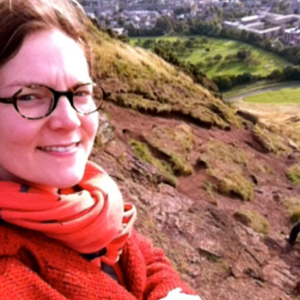Research Affiliate
Dr. Audrey Rousseau is an Associate Professor at Université du Québec en Outaouais, specializing in the sociology of memory, Indigenous studies, women’s experience of oppression, and testimonial practices.
Current research projects:
She is actively engaged in a participatory research project with Pikogan and Lac Simon Cartographie des mémoires anicinabekwek (SSHRC, 2018-…) that aims to bring together survivors and families of disappeared Indigenous women and girls to create culturally appropriate narratives to honour and commemorate their loved ones. Since May 2023, this exploratory research as evolved to include two other partners, Femmes autochtones du Québec and the Native Women Shelter Montréal to create an interactive map that document and reflect sensitively the cases of missing and murdered Indigenous women, girls, 2SLGBTQ+ (we will also include Indigenous boys and men since this map has never been done). The main goal is that these living archives serve as education tools to understand and prevent on violence against women, girls and 2SLGBTQ+ people in the province of Québec.
Since 2022, Audrey is starting a new FRQSC research project Penser la continuité des expériences : défier les logiques différentielles à l’oeuvre dans les discours de justice et de réparation au sujet des Buanderies Madeleine et des Foyers pour mères et enfants en République d’Irlande (1993-2021) (FRQSC) that aims to investigate the claims for recognition and reparation by women and children, survivors of institutional and state violence in Ireland. This new comparative discourse analysis focuses on challenging the differential logic at work between the Magdalen Laundries and Mother and Baby Homes in the Republic of Ireland (1993-2022). The objective is to investigate how prejudice based on gender, class, and age, may still be at work in depicting and distributing a capital of sympathy and veracity judgment while listening sensitively to survivors, activists, and their descendants.
Past research projects:
Audrey as just finished a three-year research project Enjeux de conservation du patrimoine historique du Camp Spirit Lake (Fonds canadien de reconnaissance de l’internement durant la Première Guerre mondiale) on the heritage of the Spirit Lake Camp in Québec (the second largest Canadian internment camp during World War I). Since no other scholarly work has tried to examine the “memory work” undertaken by the Spirit Lake Camp Interpretation Center (2011-2018), the first goal of this research was to document the challenges faced by dozens of volunteers, local and national organizations that supported the creation of the Interpretation Center exhibit. The second goal was to try in understanding the administrative failures that lead to the premature closure of that unique remembrance site in 2018. After the analysis of 10 semi-structured interviews with key stakeholders, our observations point out larger impacts of this closure on heritage transmission in dealing with the unjust treatment of Ukrainians in Québec.
To contribute humbly to the task of transmitting those stories and the history of Spirit Lake Camp, the research team as built an open access platform for primary and secondary school teachers in Québec.
Audrey’s work values the voices of marginalized social groups that have been (are) directly affected by historical wrongs, therefore she has used oral history to share, create, hear and understand different historical perspectives. She has been particularly attentive to the role and meaning conveyed by “memory entrepreneurs’ involved in different aspects of witnessing and accounting the past in the light of the present and the future. As such, her doctoral dissertation explored the contemporary struggles for justice led by survivors of the Magdalen Laundries (religious-run institutions, in the 18th-20th centuries, that confined, abused, and forced into labour girls and women deemed “fallen”) and their allies in Ireland.
As a personal artistic involvement with her doctoral research topic, Audrey independently produced a documentary film project (In Loving Memories 2017). Through the witnessing of 7 activists and researchers, the film brings to life a polyphonic narrative of affective memories –between historical record and pedagogical tool– trying to recognize the extent of discrimination in the Magdalene Laundries and the Mother and Baby Homes in Ireland.



